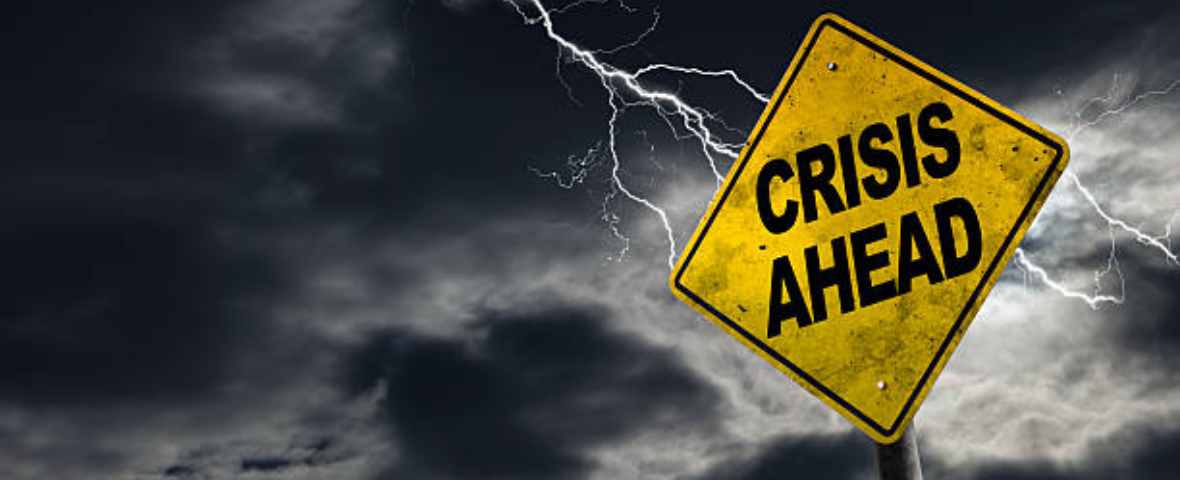
Crisis Management Strategy
A crisis can happen to any business, irrespective of the size. In today’s global economy, a crisis can get blown out of proportion in no time. If a company is not prepared for a crisis, the results can be disastrous. A well-crafted crisis management strategy can help minimize the damage done in the event of a crisis.
It is needless to say marketers must understand that effective crisis management is critical for any business. This system helps organisations to survive and even flourish during a crisis. Natural disasters, cyber-attacks, financial meltdowns, and product recalls, among others are often considered as a disaster. Hence, a well-designed crisis management plan should be ready to respond appropriately to fight such unfortunate incidents. It is imperative to understand that these crisis situations, if not handled properly, can result in severe damage to the brand’s reputation causing financial losses and even potential legal action.
Thus, a crisis management plan that includes the procedures and protocols for dealing with a crisis is crucial. A proper plan can help businesses respond quickly and effectively, thus minimising the impact of the crisis, and further ensuring a smoother recovery process. Ultimately, having a robust crisis management plan is imperative for businesses to ensure their survival and success in today’s ever-changing and unpredictable business landscape. This is applicable to the best advertising agencies in Delhi and around the country. Even globally, these facts are highly considered to get a fruitful result.
It is important to understand that no one is immune to adversity, no matter how well-prepared they are. Things are bound to go wrong. However, being prepared to handle any unforeseen crisis is what is important. In such a situation, being resilient and accepting vulnerability is the way to go. It is important that marketers embrace the fact that perfection doesn’t happen in an organic atmosphere and that things will go wrong from time to time. Another factor to keep in mind is that marketers must change according to the times and consumers. The world is constantly changing, and so should brands. As a business grows and evolves, even the crisis management strategy should be updated. Regularly reviewing the plan to make sure it’s still relevant and adjusting it as needed is a must. Also, as we go forward it only makes sense that one should forget the traditional hierarchical barriers. It is given that in a crisis, everyone needs to be on the same page, working towards the same goal. Employees should know what is expected of them and feel confident that they can meet those expectations. The traditional hierarchical barriers between management and employees need to be broken down so that everyone can work together effectively.
Keeping these things in mind while creating or updating the crisis management strategy will be helpful. Now let us look at the few points which can be helpful while formulating a top-notch crisis management strategy:
Identify key risks: The first step in any crisis management strategy is to identify the risks that could potentially impact a business. These could be anything from a natural disaster, supply chain challenges, wars, political decisions, and taxes up until a data breach. Thinking about what could go wrong and how it would affect the company is a must.
Form a crisis management team: Once the key risks are identified, it’s time to start planning for them. Marketers can start by creating a crisis management team. This team should be responsible for developing and implementing the strategy. They should also be the ones to handle any crises that come up. The team should consist of people from different departments within your company. This way, brands have a well-rounded group with the knowledge and expertise to deal with any situation.
Prioritize a ‘crisis focus’ with the team: When creating a crisis management team, it’s important to prioritize a ‘crisis focus’. ‘Crisis focus’ means that the team should be focused on dealing with crises, not day-to-day operations. This will allow them to stay alert and prepared for any potential emergencies.
Establish guidelines and protocols: Once the team is in place, it’s time to establish some guidelines and protocols. These should include things like how to handle a data breach or what to do in the event of a natural disaster. It’s also important to create a communication plan. This will outline how companies will communicate with employees, the media, and customers during a crisis.
Testing regularly: It’s important to test any plan regularly. This will help make sure that it’s effective and that everyone knows what to do in the event of an emergency. One can do this by simulation or by actually implementing the plan during a real crisis.
Training and drills: Employees are the first line of defence during a crisis. That’s why it’s important to train them on the plan and make sure they know what to do in the event of an emergency. This can be done through online training modules or by conducting drills. This ensures that everyone has the knowledge of what needs to be done in the event of an emergency. It will also help to identify any weaknesses in the plan. Doing drills regularly will help to keep the employees prepared and feel ready when something happens.
Document processes: One cannot stress enough how important it is to document all of the processes and procedures. Through proper documentation, everyone can be aware of what to do and when to do it. Documentation is especially important for complex processes or those that involve sensitive information.
Communication with the teams: Sharing a communication plan with all teams is essential for a successful crisis management strategy. This is to make sure that everyone does the needful if any crisis strikes. It will also help prevent confusion and chaos during a crisis. A good communication plan should comprise instructions that are not ambiguous and is clearly understood by employees and stakeholders.
Evaluate solutions team: Now let’s say if a crisis does occur, what should be the first step? After a crisis, it’s important to take some time to estimate what happened and how the team handled it. This will ensure any improvement that is needed in any area. It will also help the team realise what worked well and what could be done differently next time.



